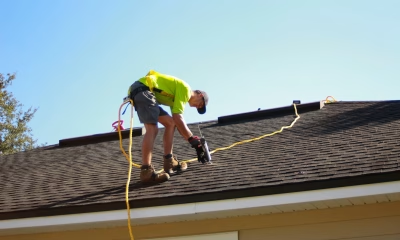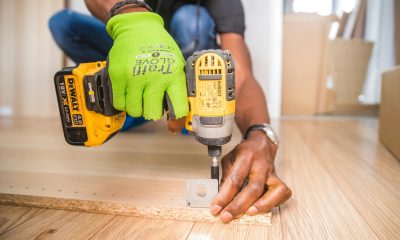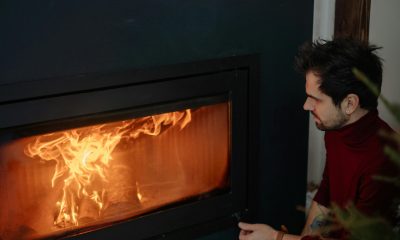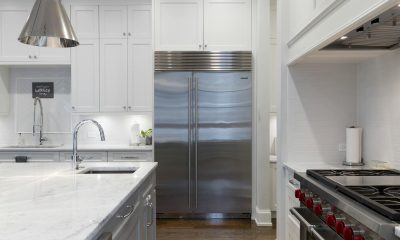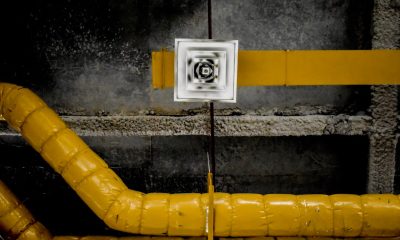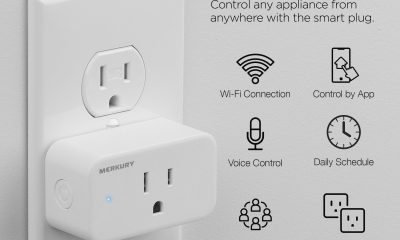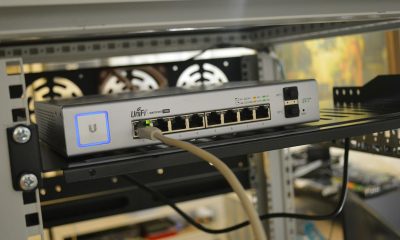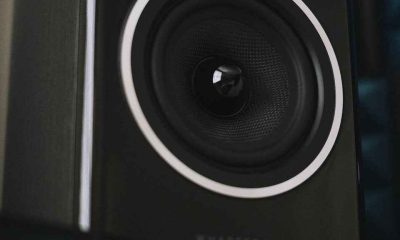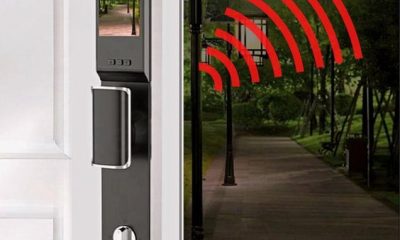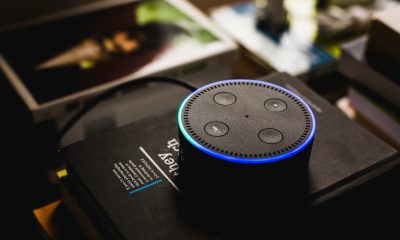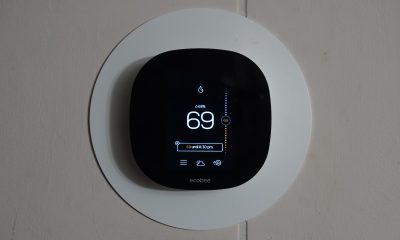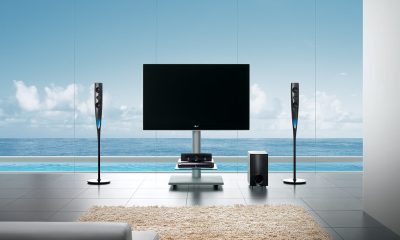Guides
Breathe Easy Every Season: The Ultimate Guide to HVAC Efficiency

The comfort of your home depends heavily on a reliable HVAC system. In cities like Buford, GA, where snowy winters make heating a necessity and long, hot summers demand strong cooling, HVAC systems work harder than in many other places.
A well-functioning system does more than regulate temperature—it helps control indoor air quality, lowers energy bills, and prevents costly breakdowns.
Without proper care, homeowners risk discomfort, unexpected expenses, and inefficiency at the times they need their systems most.
This guide will highlight some essential steps to ensure your HVAC system runs smoothly in every season.
Breathe Easy Every Season: The Ultimate Guide to HVAC Efficiency — Summary Table
| Section | Key Points | Efficiency Tips | Benefits |
|---|---|---|---|
| 1. Understanding HVAC Systems | Explains types: Central AC, Heat Pumps, Furnaces, Mini-splits | Choose the right system for your home size and climate | Improved comfort and energy efficiency |
| 2. Seasonal HVAC Maintenance | Details tasks for each season: cleaning filters, checking refrigerants, inspecting ducts | Schedule professional tune-ups (spring/fall); DIY monthly filter checks | Prevent breakdowns, lower repair costs |
| 3. Thermostat Optimization | Smart vs programmable thermostats; ideal temp settings (e.g., 68°F in winter) | Use programmable schedules; install smart thermostats | Lower bills, consistent comfort |
| 4. Air Quality & Ventilation | Discusses indoor air pollutants, humidity control, and fresh air circulation | Use HEPA filters; check humidity (ideal: 30–50%); install ERVs/HRVs | Breathe cleaner air, reduce allergens |
| 5. Energy Efficiency Upgrades | SEER ratings, insulation, window sealing, Energy Star appliances | Upgrade to high-SEER units; seal leaks; add attic insulation | Reduce utility costs, eco-friendly living |
| 6. When to Replace Your HVAC | Signs: rising bills, frequent repairs, system age (10–15+ yrs) | Conduct energy audits; consult HVAC pros | Avoid emergency replacements, save long-term |
Cooling System Care: Preparing for Hot Summers
Air conditioners work hardest when the heat is at its peak, and without proper care, they may fail when needed most. Common problems include reduced airflow, refrigerant leaks, or frozen evaporator coils.
Preparing for summer means scheduling maintenance before the hottest days arrive. A technician can check refrigerant levels, clean coils, and test the system to ensure everything runs at peak performance. Taking preventive measures saves money on repairs, extends the life of the unit, and ensures that the home stays comfortable even during prolonged heat waves.
Heating System Maintenance: Staying Warm on Cold Days
When temperatures drop, a dependable heating system becomes more than just a comfort—it is a necessity. In Buford, GA, winter nights can get cold enough that a well-functioning heater is vital for both safety and comfort. A neglected heating system may start showing warning signs such as uneven heat, strange rattling noises, or steadily rising energy bills. These issues often signal underlying problems like a failing component or poor airflow.
Professional heater maintenance in Buford, GA, is often the best solution when these issues appear. A trained technician can inspect the system, identify failing parts, and restore efficiency before a full breakdown happens. Routine maintenance also helps prevent emergency repairs, which can be both costly and inconvenient during the coldest days. A seasonal tune-up ensures the heater runs smoothly, providing consistent warmth while keeping energy use under control.
Air Filters: Small Part, Big Impact
Although air filters seem like a minor part of an HVAC system, they play a critical role in both efficiency and indoor air quality.
Filters trap dust, pollen, and other particles, keeping the air clean and preventing buildup inside the system. Filters often get clogged.
As a result airflow is restricted which forces the system to work harder. This not only raises energy bills but also increases the risk of mechanical strain.
Replacing or cleaning filters regularly is one of the simplest ways to keep the system in good condition. Most households benefit from changing filters every one to three months, depending on usage and the presence of pets or allergies.
Thermostat Upgrades and Settings
The thermostat is the control center of the HVAC system, and upgrading to a programmable or smart thermostat can bring noticeable benefits. These devices allow homeowners to set schedules that match daily routines, which reduces unnecessary heating and cooling when no one is home. Smart thermostats also provide detailed energy reports and can make automatic adjustments for greater efficiency.
Seasonal thermostat settings are another way to manage comfort and cost. Keeping the temperature slightly cooler in winter and warmer in summer reduces strain on the system while still maintaining a pleasant indoor environment. Placement of the thermostat also matters; if it is installed near windows or heat sources, it may misread the temperature, causing the system to run longer than needed.
Ductwork Inspections and Cleaning
The ductwork in an HVAC system acts as the pathway for conditioned air, and any problems with it can affect the entire system. Leaky ducts allow air to escape, which makes the system work harder to maintain the desired temperature. Dirty ducts, on the other hand, can spread dust and allergens throughout the home, reducing air quality and increasing health concerns.
A professional inspection helps identify leaks, blockages, or buildup that may be reducing efficiency. While small leaks can sometimes be sealed with specialized tape, larger problems require professional repair. Cleaning ducts every few years also helps prevent dust accumulation and improves the quality of air in the home.
Energy-Saving Practices for HVAC Systems
While professional maintenance is important, everyday habits also have a big influence on HVAC performance.
Small adjustments in how a home is managed can reduce the strain on the system and cut energy costs.
For example, ceiling fans help circulate air, making rooms feel cooler in summer and warmer in winter without overworking the system.
Closing blinds during hot afternoons keeps excess heat out, while opening them in the winter can bring in natural warmth.
Proper insulation also plays a key role in HVAC efficiency. Sealing gaps around windows, doors, and attic spaces prevents air leaks that force the system to work harder.
These practices add up, creating noticeable savings over time.
Indoor Air Quality Enhancements
Comfort is about more than just temperature. Air quality is equally important, and HVAC systems play a big role in maintaining it.
Dry winter air can cause discomfort, while excessive summer humidity can make rooms feel warmer than they are.
Adding a humidifier or dehumidifier creates balance, reducing stress on the HVAC system while improving overall comfort.
Air purifiers are another useful addition, particularly for households with allergies or respiratory concerns.
By capturing fine particles like pollen, dust, and pet dander, they improve indoor air and help the HVAC system stay cleaner for longer.
These enhancements create a healthier living environment while ensuring the system operates under better conditions.
Knowing When Repairs Aren’t Enough
Even with consistent care, HVAC systems don’t last forever. Over time, efficiency drops and repair costs begin to climb. Recognizing the point at which repairs are no longer worthwhile can save money in the long run. Warning signs include frequent breakdowns, uneven heating or cooling, and rising utility bills despite maintenance.
When repair costs begin to approach the price of a new system, replacement becomes the smarter choice. Modern HVAC systems are designed with advanced technology that delivers better efficiency and performance. While the initial cost of replacement can be significant, the long-term savings on energy bills and reduced repair expenses often outweigh the investment.
An HVAC system is more than a piece of equipment; it is a long-term investment in comfort, health, and energy savings.
The choices homeowners make determine how well that investment pays off. Instead of waiting for problems to surface, proactive care ensures that the system delivers consistent results every season.
By viewing HVAC maintenance as an ongoing responsibility rather than an occasional task, homeowners can enjoy a home that feels comfortable, clean, and efficient throughout the years to come.
-
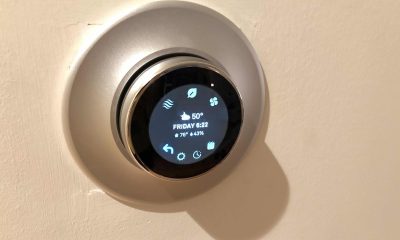
 Gadgets3 years ago
Gadgets3 years agoDoes Nest Thermostats Contain Cameras Or Microphones? Is It Safe For you?
-

 Guides2 years ago
Guides2 years ago10 Best Apps To Control All Your Smart Home Devices.
-
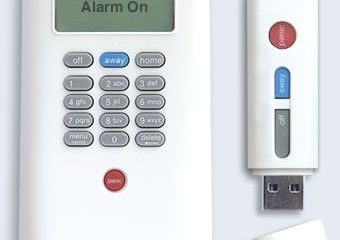
 Gadgets3 years ago
Gadgets3 years agoWhat Is The Purpose Of Red Button On The SimpliSafe Keypad?
-
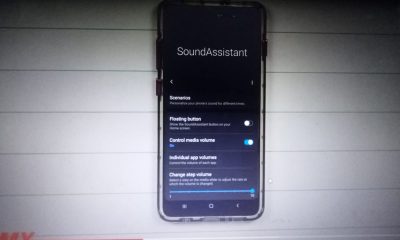
 Gadgets3 years ago
Gadgets3 years agoComplete Guide About Equalizer settings for Samsung-Soundbar
-
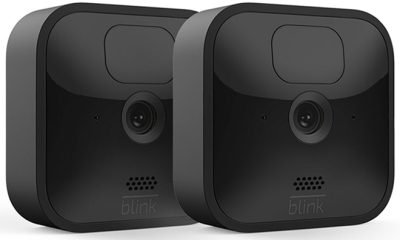
 Accessories2 years ago
Accessories2 years agoBlink Camera’s Temperature Sensor Settings, and More
-

 Accessories2 years ago
Accessories2 years agoCan Siri Control Samsung Televisions And Are Samsung TVs Homekit Compliant?
-

 Gadgets3 years ago
Gadgets3 years agoFitbit Symbols Meaning: What Do The Fitbit Icons Mean?
-

 Solutions3 years ago
Solutions3 years agoWhy is My Samsung TV Picture So Dark? Exploring the Possible Causes










